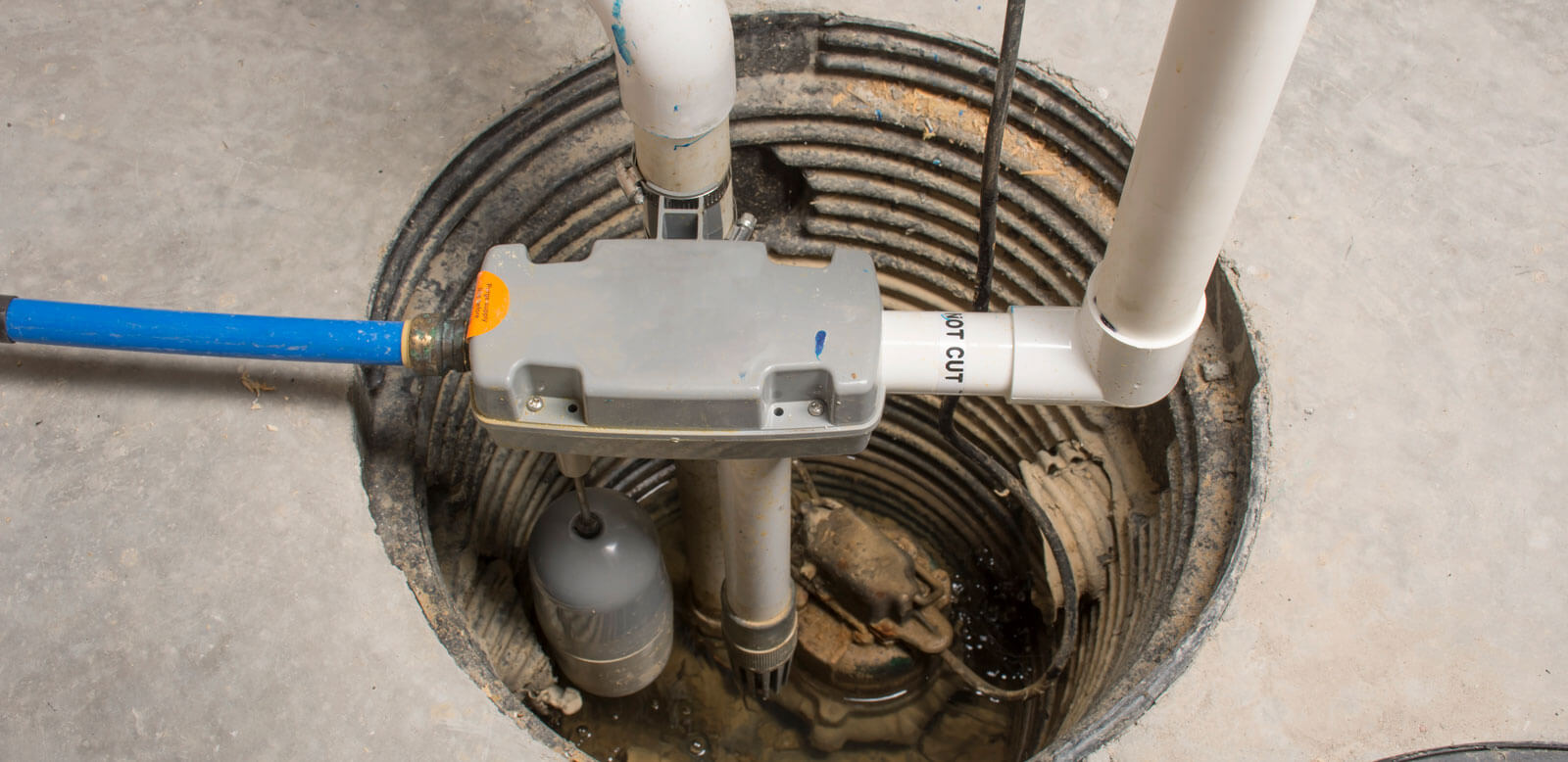
Test your sump pump knowledge
July 24, 2020 — Homeowner insights
Rain is a vital part of our ecosystem. Most days, it’s easy to be grateful for the Earth’s ever-present supply of water, but when rain results in a flooded basement, you are likely to feel otherwise.
A sump pump is a very common way to mitigate flood water from excessive rainfall; many homes already have sump pumps installed to protect against flooding and water damage. Here are a few common questions that homeowners ask about sump pumps.
What is a sump pump?
A sump pump is a pump installed in the lowest part of basements or crawlspaces that collects and removes rain and groundwater before it has a chance to flood your home. Sump pumps are found in homes where flooding is likely, such as homes whose foundations are below the local water table. The pumps are mounted in specially constructed sump pits, cylindrical wells about two feet in diameter and two-to -three feet deep. The sump pit acts as a collection area for water before it is pumped out and away from your home.
How do I know if I need a sump pump?
If you’re unsure about whether or not your home needs a sump pump, here are some questions to ask.
- Has the basement or lowest-lying area of your home previously flooded?
- Is your home in a low, flat area that tends to collect water easily?
- Do you live in an area that receives lots of rain or snow annually?
- Is your lowest level or basement finished living space that needs protected against mold and water damage?
How do I know if my sump pump is working?
To test a pump, empty a bucket of water into the sump pit. The pump should turn on, drain the water, and then turn itself back off.
Is sump pump maintenance required?
Regular sump pump upkeep is critical. The last thing you want is your sump pump failing when you need it most. Experts recommend examining pumps every year, but pumps running very frequently should be checked more often. Sump pumps need to be free from dirt and debris, and float switches free from any obstructions for proper functioning. If your sump pump is between six and 10 years old, it might be time to replace it.
Do I need a backup pump?
Thunder, lightning and strong winds often accompany rain. When storms are underway, sump pumps are often working in overdrive. If a storm knocks out the power, your sump pump will stop working. Some homeowners opt to install a battery-powered backup pump to maintain proper functioning if the main power supply is disrupted. Sump pumps can also run on power from municipal water pressure. In this case, water from a garden hose powers the pump while another hose carries the water away. Although rarely relied on, backup pumps need to be checked for proper functioning and adequate battery charge as well. All sump pumps will eventually fail–having a secondary pump and water alarm can help you avoid unexpected problems.
Is a sump pump enough protection?
Even with a sump pump, your property can experience water damage. The best way to protect your home is to ensure your homeowners policy has a rider that covers this type of risk. A typical homeowners insurance policy does not cover water backup due to a failed sump pump. Surprisingly, flood insurance does not cover this type of water damage either. While water backup in your basement may be considered a basement flood by most, flood insurance only covers damage from rising waters caused by an overflowing body of water.
Fortunately, coverage for water backups caused by a failed sump pump can be added to a homeowners policy, typically through an added endorsement. Most sump pump failure coverage does not include the failed pump itself. In this case, the homeowner must cover the cost of a replacement pump. Check your homeowners policy and consider adding a special endorsement for water damage caused by failed pumps.
Installing and maintaining a sump pump is an important step toward protecting your home against water damage. Consider protecting yourself even further by adding an endorsement to your homeowners policy for water damage caused by failed pumps. Don’t wait–reach out to your insurance agent before the next big rain.
